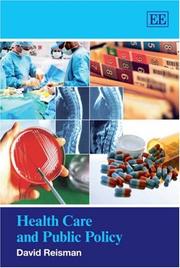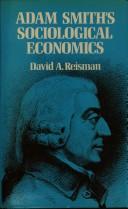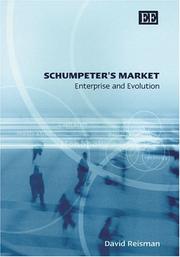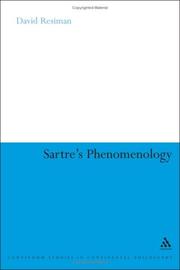| Listing 1 - 10 of 54 | << page >> |
Sort by
|

ISBN: 9781845429249 Year: 2007 Publisher: Cheltenham Elgar
Abstract | Keywords | Export | Availability | Bookmark
 Loading...
Loading...Choose an application
- Reference Manager
- EndNote
- RefWorks (Direct export to RefWorks)
Service industry --- #SBIB:316.334.3M50 --- #SBIB:35H436 --- gezondheidseconomie --- gezondheidszorg --- kosten-batenanalyse --- openbaar bestuur --- Organisatie van de gezondheidszorg: algemeen, beleid --- Beleidssectoren: welzijn, volksgezondheid en cultuur --- Dienstensector --- Medical policy --- Health care policy --- Health policy --- Medical care --- Medicine and state --- Policy, Medical --- Public health --- Public health policy --- State and medicine --- Science and state --- Social policy --- Economic aspects --- Government policy --- Finances --- Sécurite sociale --- Coûts - benefices --- Santé

ISBN: 0856642843 0064958302 9780856642845 9780064958301 Year: 1976 Publisher: London Croom Helm
Abstract | Keywords | Export | Availability | Bookmark
 Loading...
Loading...Choose an application
- Reference Manager
- EndNote
- RefWorks (Direct export to RefWorks)
Book
ISBN: 0333494717 9780333494714 Year: 1990 Publisher: London Macmillan
Abstract | Keywords | Export | Availability | Bookmark
 Loading...
Loading...Choose an application
- Reference Manager
- EndNote
- RefWorks (Direct export to RefWorks)
Labour conflicts --- Public goods. --- Pressure groups. --- Decision making. --- Social groups. --- Democracy. --- Downs, Anthony. --- Olson, Mancur. --- Hirsch, Fred. --- Decision Making. --- Decision making --- Arbeidsconflicten

ISBN: 1843761645 Year: 2004 Publisher: Cheltenham Elgar
Abstract | Keywords | Export | Availability | Bookmark
 Loading...
Loading...Choose an application
- Reference Manager
- EndNote
- RefWorks (Direct export to RefWorks)
Schumpeter, Joseph A. --- Economists --- -Entrepreneurship --- Capitalism --- Equilibrium (Economics) --- 330.092 --- Disequilibrium (Economics) --- Economic equilibrium --- General equilibrium (Economics) --- Partial equilibrium (Economics) --- Economics --- Stagnation (Economics) --- Statics and dynamics (Social sciences) --- Market economy --- Profit --- Capital --- Entrepreneur --- Intrapreneur --- Business incubators --- Social scientists --- Schumpeter, Joseph Alois, --- Schumpeter, J. A. --- Shumpeter, I. --- Shumpeter, Ĭ. --- Shumpeter, Iosif Aloiz, --- Shumpeter, Ĭozef, --- Shunpētā, --- Entrepreneurship. --- Capitalism. --- Evolutionary economics. --- Schumpeter, Joseph A.,

ISBN: 9780826487254 0826487254 Year: 2007 Volume: *3 Publisher: London Continuum
Abstract | Keywords | Export | Availability | Bookmark
 Loading...
Loading...Choose an application
- Reference Manager
- EndNote
- RefWorks (Direct export to RefWorks)
. In Being and Nothingness Sartre picks up diverging threads in the phenomenological tradition, weaves them together with ideas from Gestalt and behaviourist psychology, and asks: What is consciousness? What is its relationship to the body, to the external world, and to other minds? Sartre believes that the mind and its states are by-products of introspection, created in the act that purports to discover them. How does this happen? And how are we able to perceive ourselves as persons - physical objects with mental states? Sartre's Phenomenology reconstructs Sartre's answers to these crucial q
Existentialism. --- Existential psychology. --- Psychology, Existential --- Existentialism --- Phenomenological psychology --- Phenomenology --- Psychoanalysis --- Existenzphilosophie --- Ontology --- Philosophy, Modern --- Epiphanism --- Relationism --- Self --- Sartre, Jean-Paul, --- Strawson, P. F. --- Strawson, Peter Frederick --- Sartŭr, Zhan-Pol, --- Sartr, Zhan-Polʹ, --- Sārtar, Jān-Būl, --- Sārtar, Zhān-Pūl, --- Sha-tʻe, --- Sartre, J.-P. --- Sa-tʻe, --- Sate, --- Sa-tʻe, Jang-Pao-erh, --- Sate, Rangbao'er, --- Sāt, Chō̜ng-Pō̜n, --- Sarutoru, --- Sarṭr, G'on Pol, --- Chō̜ng-Pō̜n Sāt, --- Cārttar, L̲ān̲-Pōl, --- Сартp, Жан-Поль, --- סארטר, ג׳אן פול --- סארטר, ג׳אן פון --- סארטר, ז׳אן פול --- סארטר, ז׳אן־פול, --- سارتر، جان پول --- Guillemin, Jacques, --- Sārtra, Jyām̐ Pāla, --- Sartre, Jean-Paul, 1905-1980. --- Existential psychology --- Philosophy & Religion --- Philosophy --- Sartre, Jean-Paul --- Sartŭr, Zhan-Pol --- Sartr, Zhan-Polʹ --- Sārtar, Jān-Būl --- Sārtar, Zhān-Pūl --- Sha-tʻe --- Sa-tʻe --- Sate --- Sa-tʻe, Jang-Pao-erh --- Sate, Rangbao'er --- Sāt, Chō̜ng-Pō̜n --- Sarutoru --- Sarṭr, G'on Pol --- Chō̜ng-Pō̜n Sāt --- Cārttar, L̲ān̲-Pōl --- Guillemin, Jacques --- Sārtra, Jyām̐ Pāla --- サルトル, ジャン ポール --- Phénoménologie --- Sartre, jean-paul
Book
ISBN: 031209986X 9780312099862 Year: 1993 Publisher: New York (N.Y.): St. Martin's
Abstract | Keywords | Export | Availability | Bookmark
 Loading...
Loading...Choose an application
- Reference Manager
- EndNote
- RefWorks (Direct export to RefWorks)
Medical economics --- Medical policy --- #SBIB:316.334.3M50 --- #SBIB:35H436 --- Health care policy --- Health policy --- Medical care --- Medicine and state --- Policy, Medical --- Public health --- Public health policy --- State and medicine --- Science and state --- Social policy --- Economics, Medical --- Health --- Health economics --- Hygiene --- Medicine --- Organisatie van de gezondheidszorg: algemeen, beleid --- Beleidssectoren: welzijn, volksgezondheid en cultuur --- Government policy --- Economic aspects
Book
ISBN: 1137427175 9781137427175 1137427183 1349491055 9781137427182 Year: 2015 Publisher: Basingstoke Palgrave Macmillan
Abstract | Keywords | Export | Availability | Bookmark
 Loading...
Loading...Choose an application
- Reference Manager
- EndNote
- RefWorks (Direct export to RefWorks)
James Buchanan (1919-2013), economist and philosopher, was awarded the Nobel Prize in Economics in 1986 for his original theory of political democracy as market exchange. Buchanan believed economics should be concerned with liberty, individualism and equity.
Economics --- Economists --- Political aspects --- Buchanan, James M. --- Economic schools --- Political aspects. --- Buchanan, J. M. --- E-books --- Economic theory --- Political economy --- Social sciences --- Economic man --- Political economy. --- Economic theory. --- Macroeconomics. --- Economic history. --- Economics. --- Economic Theory/Quantitative Economics/Mathematical Methods. --- Political Economy. --- Macroeconomics/Monetary Economics//Financial Economics. --- Economic History. --- Social Philosophy. --- Economic conditions --- History, Economic --- Social philosophy --- Social theory --- Philosophy. --- Economische leerstelsels --- Social sciences-Philosophy. --- International Political Economy. --- Social sciences—Philosophy. --- Economics - Political aspects --- Economists - United States
Book
ISBN: 331969281X 3319692801 9783319692807 Year: 2018 Publisher: Cham : Springer International Publishing : Imprint: Palgrave Macmillan,
Abstract | Keywords | Export | Availability | Bookmark
 Loading...
Loading...Choose an application
- Reference Manager
- EndNote
- RefWorks (Direct export to RefWorks)
This book reviews James Meade's prolific contribution to economics and its lasting impact. Few economists have written so much and on so many different topics. Meade was awarded the Nobel Prize in Economics in 1977 (jointly with Bertil Ohlin) for his contribution to international economics, but could just as easily have been awarded this for his contribution to the economics and politics of the managed economy. His commitment to the middle ground, neither free market nor command, runs through the whole of his published work, from Planning and the Price Mechanism in the shadow of post-war rationing to The Intelligent Radical’s Guide to Economic Policy and Full Employment Regained? when inflation combined with stagnation reopened the debate between the monetarists and the Keynesians. Meade was active in politics, most prominently in the debates in the 1960s about the European Economic Community and in the 1980s on the formation of Britain’s Social Democratic Party. As a person, he can best be described as a cultured Englishman, quiet and open, much in the mould of Coase, Mirrlees or Hicks. This book draws upon the whole of Meade’s published work. It incorporates insights from unpublished papers and surviving correspondence kept at the London School of Economics and Political Science as well as interviews with family members and associates. The book will be of interest to economists but also to the students of politics and philosophy that Meade himself would have wanted to reach.
Philosophy and science. --- Welfare economics. --- Economic history. --- Economics. --- History of Economic Thought/Methodology. --- Philosophy of Science. --- Economic History. --- Social Choice/Welfare Economics/Public Choice. --- International Political Economy. --- Science --- Political economy. --- Social Choice/Welfare Economics/Public Choice/Political Economy. --- Philosophy. --- Economic theory --- Political economy --- Social sciences --- Economic man --- Economic policy --- Economics --- Social policy --- Normal science --- Philosophy of science --- Economic conditions --- History, Economic --- Science and philosophy --- Economists - Great Britain --- Economics - Political aspects - Great Britain --- Meade, James Edward, - 1907-1995 --- Economists
Book
ISBN: 303001956X 3030019551 9783030019556 Year: 2018 Publisher: Cham : Springer International Publishing : Imprint: Palgrave Macmillan,
Abstract | Keywords | Export | Availability | Bookmark
 Loading...
Loading...Choose an application
- Reference Manager
- EndNote
- RefWorks (Direct export to RefWorks)
Thomas Robert Malthus (1766-1834) was a leading figure in the British classical school of economics, best-known for extending the insights of Adam Smith at a time of revolutionary improvements in agriculture and industry. This book explores the way in which he accounted for the tendency to overpopulation, the exhaustion of arable land and the deficiency of effective demand. Malthus relied on historical and empirical evidence in the spirit of Bacon and Hume, but also backed up his data with a priori hypotheses that link him to his contemporary, David Ricardo. Malthus was strongly in favour of free trade, the minimal State, the gold standard and the abolition of poverty relief. Always a pragmatist, however, he was just as much in favour of public education, contra-cyclical public works and a safety net of tariffs and bounties to encourage national self-sufficiency with regard to food. He was both an economist and a clergyman and saw the two roles as interconnected. Malthus believed that a benevolent Deity had created vice and misery in order to shake human beings out of their natural indolence that would otherwise have condemned them to still greater distress. This title provides a clear and comprehensive examination of Malthus’s economic and social thought. It will be of interest to students and scholars alike. David Reisman is Professor Emeritus of Economics, University of Surrey, UK, and Senior Associate, Centre for Liberal Arts and Social Sciences, Nanyang Technological University, Singapore. Reisman has also published James Buchanan and James Edward Meade within Palgrave Macmillan’s series Great Thinkers in Economics.
Malthus, T. R. --- Malthus, Thomas Robert, --- Malʹtus, Tomas Robert, --- Ma-êrh-sa-ssŭ, --- Malthus, Robert, --- Author of the Essay on the principle of population, --- Marasasu, --- Essay on the principle of population, Author of the, --- מלתוס, תומס רוברט, --- Economic history. --- Population. --- Welfare economics. --- Public finance. --- Agricultural economics. --- History of Economic Thought/Methodology. --- Population Economics. --- Social Choice/Welfare Economics/Public Choice/Political Economy. --- Economic History. --- Public Economics. --- Agricultural Economics. --- Agrarian question --- Agribusiness --- Agricultural economics --- Agricultural production economics --- Agriculture --- Production economics, Agricultural --- Land use, Rural --- Cameralistics --- Public finance --- Currency question --- Economic policy --- Economics --- Social policy --- Human population --- Human populations --- Population growth --- Populations, Human --- Human ecology --- Sociology --- Demography --- Malthusianism --- Economic conditions --- History, Economic --- Economic aspects --- Public finances --- Population --- Malthus, Thomas Robert, - 1766-1834
Book
ISBN: 9781848448926 1848448929 Year: 2010 Publisher: Cheltenham Elgar
Abstract | Keywords | Export | Availability | Bookmark
 Loading...
Loading...Choose an application
- Reference Manager
- EndNote
- RefWorks (Direct export to RefWorks)
Spas, pilgrimages and trips to famous specialists are not new. What is new is the volume of patients willing and able to travel great distances for a variety of treatments and procedures. This book explains why health-related travel is growing rapidly in a world where social welfare is a global concern.
Medical tourism. --- Medical tourism --- Public welfare. --- International trade --- Tourisme médical --- Aide sociale --- Commerce international --- Economic aspects. --- Health aspects. --- Aspect économique --- Aspect sanitaire --- Public welfare --- #SBIB:316.334.3M50 --- #SBIB:35H436 --- Benevolent institutions --- Poor relief --- Public assistance --- Public charities --- Public relief --- Public welfare reform --- Relief (Aid) --- Social welfare --- Welfare (Public assistance) --- Welfare reform --- Human services --- Social service --- Health tourism --- Tourism --- External trade --- Foreign commerce --- Foreign trade --- Global commerce --- Global trade --- Trade, International --- World trade --- Commerce --- International economic relations --- Non-traded goods --- Health aspects --- Economic aspects --- Organisatie van de gezondheidszorg: algemeen, beleid --- Beleidssectoren: welzijn, volksgezondheid en cultuur --- Government policy
| Listing 1 - 10 of 54 | << page >> |
Sort by
|

 Search
Search Feedback
Feedback About UniCat
About UniCat  Help
Help News
News